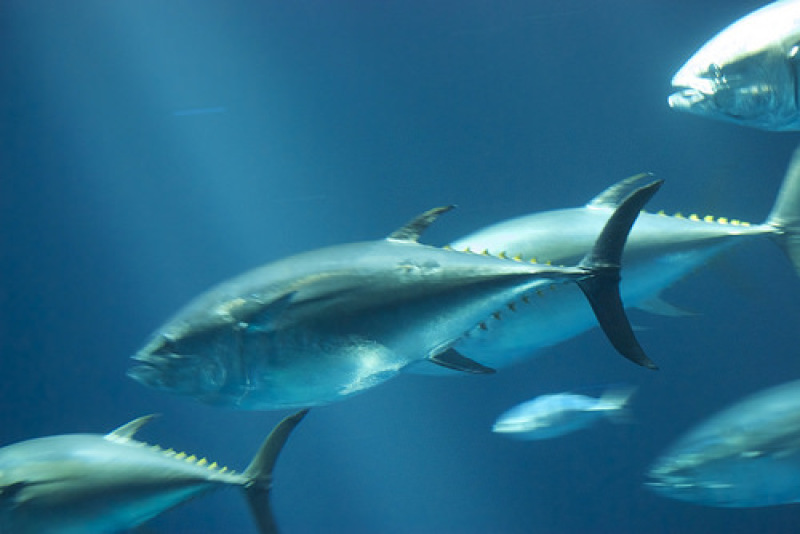
A study on marine life conducted by a team of researchers revealed that the mercury levels found in yellowfin tuna in the Pacific Ocean has been increasing by 3.8 percent each year, Newsweek reported.
The researchers noted that the annual steady increase started in 1998.
According to their findings, the reason behind the rise in mercury among the marine animals is air pollution. More specifically, chemicals emitted by burning coal end up in the ocean and become part of the animals' natural food chain.
"Evidence is piling up that the methyl mercury has an anthropogenic source," lead author Paul Drevnick, an eco-toxicologist from the University of Michigan said in a statement according to the Los Angeles Times.
"It's coming from mercury emissions that are falling into the ocean," he added.
The researchers noted in the study that the current levels of mercury found in the yellowfin tuna, also known as the Ahi tuna, are not high enough to endanger humans. However, they warned that the findings indicate that the presence of mercury in the Pacific Ocean may soon spread to other marine animals.
Since tuna are not known as top predators in the ocean, they are part of the food chain of other larger or more dominant animals. This means the mercury in the tunas body could transfer to other fish species through consumption.
"What this number is saying is that the amount of mercury in fish is getting higher and higher all the time, and if it keeps going like that, at some point, most every kind of fish is going to be potentially hazardous," Carl Lamborg of the Woods Hole Oceanographic Institution and co-author of the study said in a statement.
The findings of the researchers contradicted previous studies launched by commercial tuna canning companies, which claim the mercury found in the animals originated from natural sources and not man-made activities.
Whether the mercury in fish came from natural or chemical sources, the U.S. Food and Drug Administration strongly recommends that children and pregnant women should limit the amount of tuna and other fish species they consume.


















